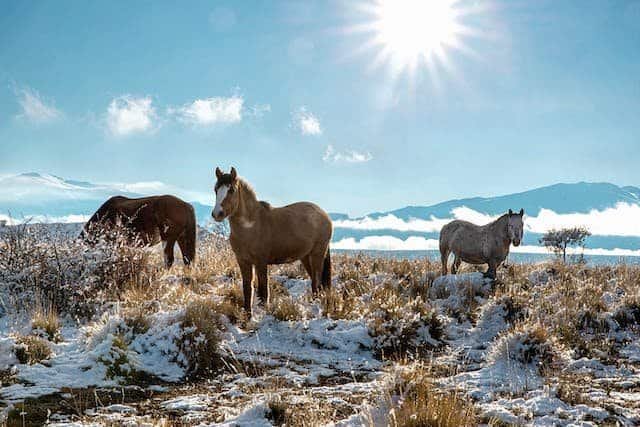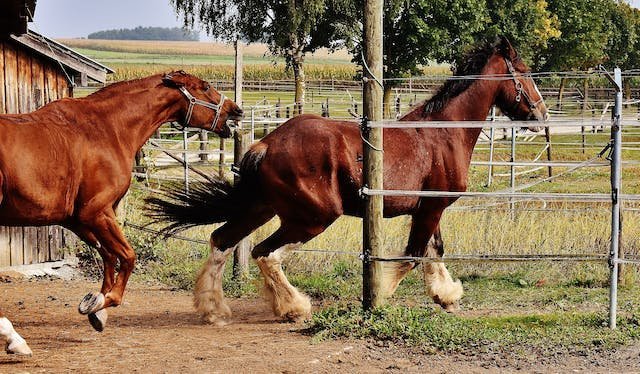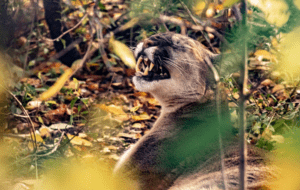Have you ever wonder that Why were horses Domesticated? Horses have been domesticated for many centuries, and their history has been closely intertwined with that of humans.
There is evidence that horses were kept as a source of meat and milk before they were trained as working animals. Attempts to date domestication by genetic study or analysis of physical remains rest on the assumption that there was a separation of the genotypes of domesticated and wild populations.
The exact reasons for why horses were first domesticated are still somewhat unclear, but there are several theories that attempt to explain this phenomenon.
First Theory: One theory is that horses were originally domesticated as a source of food. Early humans may have hunted wild horses for their meat, and eventually learned to tame and breed them for a more reliable food source. This theory is supported by archaeological evidence of horse remains being found in early human settlements.
Second Theory: Another theory suggests that horses were domesticated for their use as pack animals. Before the invention of the wheel, humans needed strong animals to carry heavy loads over long distances. Horses proved to be a valuable asset in this regard, as they are strong and fast animals with a natural ability to travel long distances.
Research: Some researchers also believe that horses were domesticated for their use in warfare. As humans became more advanced and began to engage in battles and conquests, horses were trained for combat purposes. They provided an advantage on the battlefield, allowing soldiers to move quickly and cover large distances.
Table of Contents
History of Horse Domestication.
The exact timeline of horse domestication is also a topic of debate. Some experts believe that horses were first domesticated around 4000 BC in the Eurasian Steppe, while others suggest it may have happened as early as 6000 BC. Regardless of the exact date, it is clear that horses played a significant role in human history.
Roles of Domesticated Horses

Beyond their initial purposes of food, transportation, and warfare, domesticated horses have played a variety of roles throughout history. They have been used for agriculture and farming, as well as for leisure activities such as racing, riding, and showing.
In modern times, horses are still widely used in both recreational and practical settings. Many people enjoy horseback riding as a hobby or sport, while others still rely on horses for transportation and work purposes. Horses are also important in the agricultural industry, with some farms using them for plowing and other tasks.
Why Were Horses Domesticated? Advantages of Horse Domestication
With the use of horses, humans were able to travel further and faster, expand their trade routes, and engage in warfare more effectively. Horses also played a crucial role in agricultural development, allowing for larger-scale farming and crop production.
Additionally, the bond between humans and horses has been proven to have a positive impact on mental health and well-being. Many people find joy and companionship in their relationships with horses, making them not just valuable assets but also beloved companions.
Importance of Horses in Human Civilization

The domestication of horses had a profound impact on human civilization. It allowed for faster and more efficient transportation, which led to the development of trade networks and the exchange of goods and ideas across long distances. Horses also played a crucial role in agriculture, as they were used to plow fields and transport crops.
Furthermore, their use in warfare changed the course of history. The rise of mounted cavalry in ancient civilizations such as the Romans and Mongols helped to expand empires and conquer new territories.
Heavy Breeds Horses:
- Shire
- Clydesdale
- Percheron
Shire Breed
The Shire horse is a breed of heavy draft horse that originated in England. It is known for its strength and size, with some individuals reaching over 17 hands tall and weighing over 2,000 pounds. The Shire was historically used for agricultural work, but now commonly participates in shows and parades.
Clydesdale Breed
The Clydesdale horse originated in Scotland and is known for its distinctive feathered feet, long legs, and wide white blaze on its face. Like the Shire, it was traditionally used for agricultural work but is now commonly seen in parades and as a symbol of Budweiser beer.
Percheron Breed
The Percheron is a French breed of heavy draft horse known for its strength, docile temperament, and high endurance. It was originally bred for use in warfare but later became popular for farming and transportation purposes.
Light Breeds Horses:
- Arabian
- Thoroughbred
- American Quarter Horse
Arabian Breed
The Arabian horse is one of the oldest and most recognizable breeds, originating in the Arabian Peninsula. It is known for its distinctive head shape, high tail carriage, and endurance. The Arabian was traditionally used for long-distance travel and now competes in a variety of equestrian sports.
Thoroughbred Breed
The Thoroughbred is a hot-blooded breed that originated in England and is known for its speed and agility. It was originally bred for horse racing, but now also excels in other equestrian sports such as jumping and dressage.
American Quarter Breed
The American Quarter Horse is a breed of horse that originated in the United States. It is known for its speed over short distances, making it ideal for quarter-mile races, hence its name. The Quarter Horse is also popular for ranch work and western riding activities. However, it’s versatility has led to its use in a wide range of equestrian disciplines.
How Horses Have Contributed to Human Progress and Development

Overall, the domestication of horses has had a significant impact on human progress and development. They have been instrumental in shaping our transportation systems, agricultural practices, warfare tactics, and leisure activities.
The bond between humans and horses continues to this day, with these magnificent animals being valued not just for their practical uses, but also for the joy and companionship they bring into our lives.
Final thoughts
The domestication of horses has been a long and complex process with multiple contributing factors. Whether for food, transportation, or warfare purposes, horses have played an essential role in human history and continue to do so today.
Their impact on human civilization is undeniable, and their presence in our lives is a testament to the enduring bond between humans and animals.
Read Also: Where Did Wild Horses Originate?





